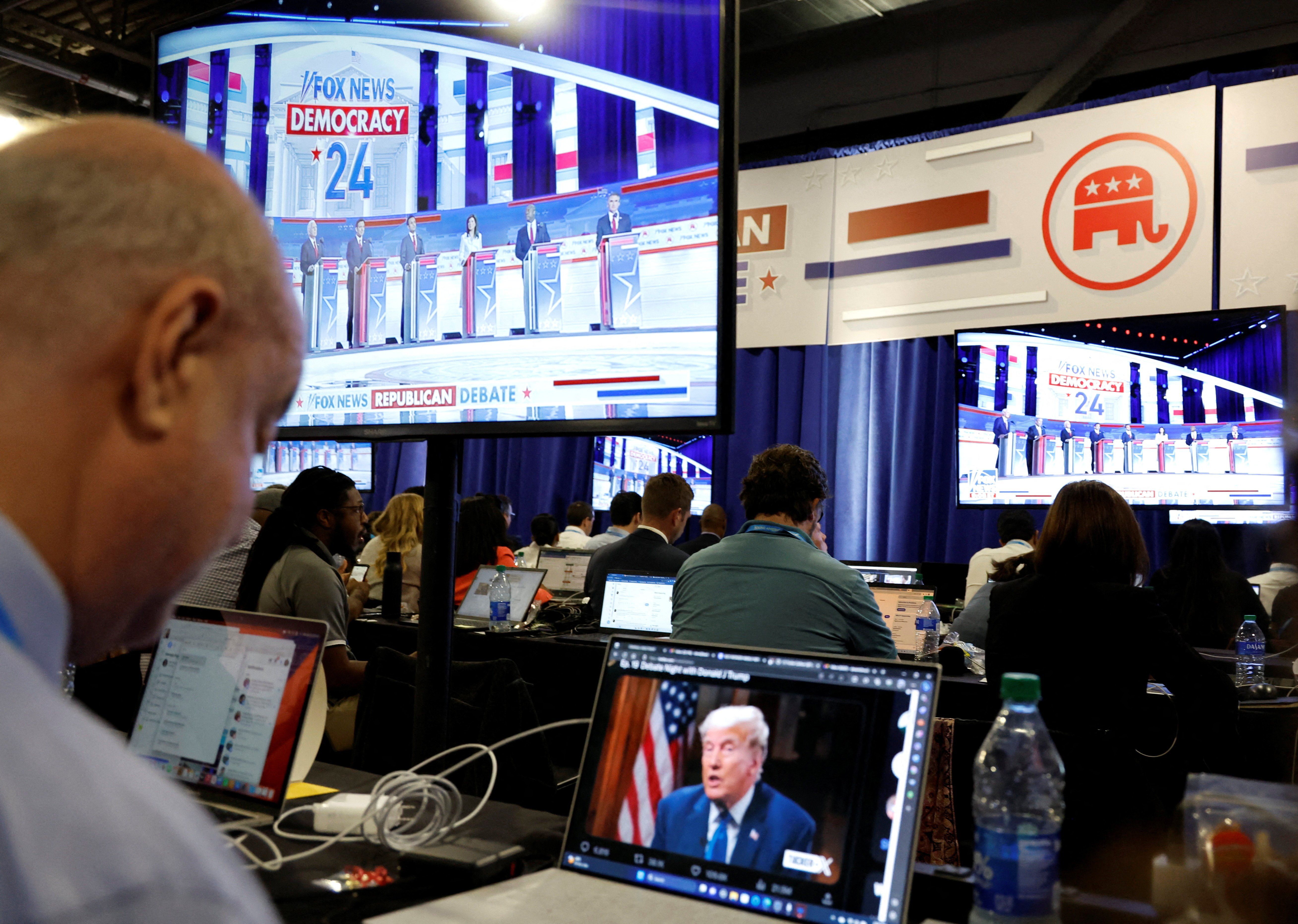Eight Republican presidential candidates faced off in Milwaukee on Wednesday night in the first debate (or screaming match) of the primary season.
After meeting the Republican National Committee’s qualification criteria to participate in the debate hosted by FOX News, former VP Mike Pence, former South Carolina Gov. Nikki Haley, entrepreneur Vivek Ramaswamy, Florida Gov. Ron DeSantis, former New Jersey Gov. Chris Christie, Senator Tim Scott, former Arkansas Gov. Asa Hutchinson, and North Dakota Gov. Doug Burgum made their respective cases to the American people.
Plenty of important issues were raised, including abortion access, the economy, and education. But the candidates’ responses largely resembled prepared talking points that likely did little to excite those watching at home.
Still, the heated – and at times chaotic – exchanges revealed much about the state of the Republican primary race. Here are a few key takeaways:
Abortion is (still) a doozy for the GOP. Despite proclaiming their respective pro-life bonafides, nearly all candidates, excluding Pence, obfuscated when asked whether they’d support a federal abortion ban. It’s a very delicate balancing act in a party where uncompromising pro-life stances might resonate with the base, though a large swathe of Americans – some 47% – support abortion access in the early months of pregnancy. Indeed, a series of recent votes in states like Kansas and Michigan prove that gutting abortion access entirely is a losing strategy for the GOP.
Most, though not all, back ongoing Ukraine aid. Unsurprisingly, the contenders talked tough on Russia, with Pence and Christie in particular emphasizing their disdain for Vladimir Putin and their admiration for Ukraine. However, Ramaswamy, perhaps auditioning for Trump’s VP, tried to establish himself as fluent in MAGA, saying that the US should stop sending funds to Ukraine. He also derided some of the others for treating Ukraine’s President Volodymyr Zelensky like … the Pope, which is likely to offend some voters.
Haley, a former UN ambassador during the Trump administration, used the opportunity to tout her foreign policy bonafides and came out looking strong.
No one knows what to do about Trump. Almost an hour into the debate, the moderators finally raised the issue of “the elephant not in the room.”
Asked whether they would support Trump if he becomes the nominee – reiterating that he now faces four criminal indictments – Ramaswamy was the only one to raise his hand confidently, before most of the other candidates sheepishly looked around and followed suit.
It was yet another sign that the GOP hopefuls are still struggling to position themselves against the former president, their rival, who maintains a solid grip over the GOP base. (He’s currently polling at 52%, compared to DeSantis’ 15%.) Still, Haley went there, saying that Trump is the most unpopular politician in America. Will it backfire?
DeSantis might not be worth attacking. In the lead up to the debate, the DeSantis campaign, currently in second place, said that it expected to be attacked left, right and center. But that didn’t happen at all, highlighting that – after a series of recent setbacks – the Florida governor might not be viewed as a serious threat after all.
Indeed, the way that Haley and Pence in particular exchanged barbs with Ramaswamy suggests that, as Ian Bremmer recently said, the little-known tech entrepreneur might be Trump’s main emerging rival.
The winner who wasn’t there. Ditching the debate, Trump gave a pre-recorded interview with former FOX News star Tucker Carlson on X, formerly known as Twitter. And today, the former president will again steal the spotlight when he surrenders for arrest in Georgia following his indictment in the 2020 election case, meaning that the debate post-mortem will be short-lived.
The timing of Trump’s surrender in Georgia, coupled with the fact that much of the night descended into squabbling, suggests that the person who came out on top was the man who didn't even bother to show up.
“The winner of tonight’s debate wasn’t on stage at all,” says Jon Lieber, Eurasia Group’s chief US politics expert. “With the also-rans doing more to tear each other apart than go after him, former President Trump managed to for once stay above the fray and win by not playing the game at all.”
